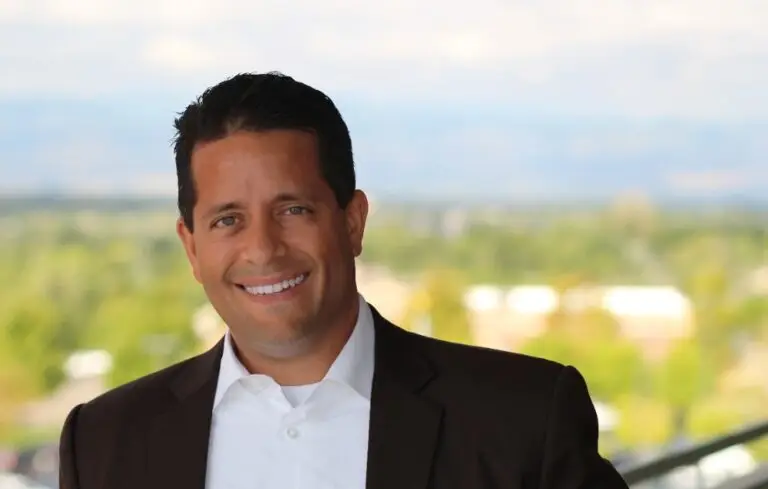The term “social contract” may sound academic, but in business, it’s incredibly practical. It’s the unspoken agreement between companies and the people who power them, and it requires an evolving understanding of responsibility, fairness and trust. As we see AI technology continue to grow, that contract is being rewritten in real time.
I believe the modern social contract demands that we prepare our people for the future instead of replacing them with technology. It’s not enough to chase the latest innovation. The real challenge is using it in a way that strengthens your business and your workforce.
When the Rules Change, So Does the Responsibility
Every time a major shift happens, whether it’s a new technology, a new regulation or a global disruption, businesses face a choice. Do we adapt our responsibilities to match the moment, or do we default to doing what’s easiest or cheapest?
With AI, we’re at an inflection point. The tools we now have access to are powerful. They can draft sales emails, summarize meetings, clean databases, route calls and qualify leads. However, just because they can do those things doesn’t mean they should, at least not totally on their own.
What’s needed now is clarity and leadership. Our workforce needs training and clear guidelines, not just new software and AI licenses. Otherwise, we risk replacing skill development with shortcuts, and that’s not a sustainable path forward.
AI Should Elevate Human Talent, Not Replace It
Let’s be clear: I’m not anti-AI. As a leader, I’m exploring new ways to integrate AI into our sales and customer experience solutions. But we’re doing it with guardrails and purpose. We see AI as a productivity multiplier, not a personnel substitute.
Consider sales development representatives (SDRs). There’s a lot of buzz right now about AI tools that can “replace” SDRs. But sales isn’t just about outreach—it’s about building relationships. A well-trained SDR doesn’t just book meetings. They ask smart questions, read the room, build rapport and handle objections with nuance and compassion. That human skillset is still the core of effective selling.
The same goes for customer service. When’s the last time you received exceptional service? Most people have to stop and think. But ask them about bad service and they’ll rattle off examples from just this week.
Good service requires empathy, listening and a willingness to problem-solve. These aren’t just tasks. They are critical interactions. AI can support those moments, but it shouldn’t own them.
Don’t Mistake Noise for Progress
We’re also in a time where every company claims to be “doing something with AI.” But in many cases, that just means adding a chatbot or tweaking a workflow. The truth is, a lot of AI adoption is still surface-level. It’s done for show, not for substance.
From my perspective, if the tech we’re adopting isn’t moving the needle on outcomes, it’s all just theater. Innovation without impact is noise. The goal for adopting AI should be to make your teams smarter, faster and more prepared. Simply appearing to be on the cutting edge is not a recipe for sustainable success.
However, there are plenty of real-world benefits to adopting AI. For instance, using automation to clean data before a campaign frees up our people to do what they do best—build relationships and close deals. We can also use AI to help identify potential buyers earlier in the funnel, enabling our team to step in at the right moment. But none of that would matter without the human touch that follows.
Investing in People Is Still the Best ROI
I lead a company with a unique business model. We employ and empower women, many of whom have been impacted by incarceration, and give them a second chance through meaningful work in sales and marketing. These are individuals that most companies overlook. But with the right coaching, support and tools, they outperform expectations every day.
It has shaped my perspective on AI in a major way. We’ve proven that when you invest in people, when you give them structure and support, they rise. AI doesn’t change that, but it can enhance the effect. Implemented properly, AI tools can help us train faster, perform better and achieve stronger results for our clients. But that only works because we built our foundation on people first.
That’s the lesson I think more leaders in service industries need to keep in mind. AI is not your value driver. Your people are. Technology should support their growth, not sideline it.
Getting It Right
When companies get this right, the results speak for themselves: higher productivity, stronger customer outcomes and more engaged employees. In our business, that means SDRs who can personalize outreach with insight from AI. Agents who resolve customer issues faster because they have better context and data. Teams that are focused, skilled and aligned, not displaced.
We can’t afford to get this wrong. Because if we do, we’ll hollow out the very teams we depend on to differentiate ourselves in the market.
There’s no question AI is going to keep advancing. But no matter how smart the tools get, the heart of any business will always be its people.
So, to my fellow leaders: If you’re feeling the pressure to “do something with AI,” start by asking a different question: How will this help our people do better work? If you can answer that, you’re on the right path.
Because the future of work isn’t just about technology. It’s about trust, growth and the people you build up along the way.







